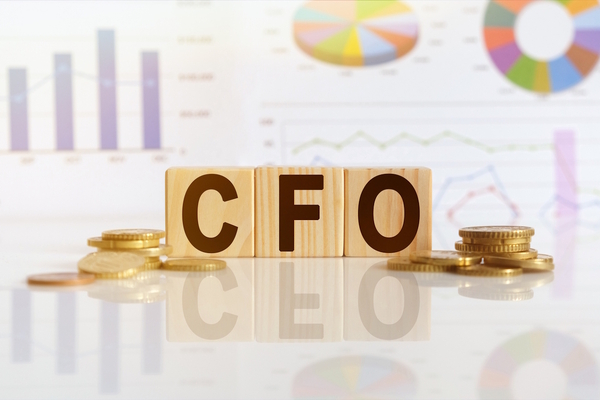To Zuck, with care

Monika Liikamaa and Denise Johansson at Enfuce explain why brands don’t need more toxic masculinity
While Mark Zuckerberg advocates for more masculine energy in the workplace, our planet is burning—and that’s just one of the many crises which are fuelled by the very ego-driven mindset that toxic masculinity promotes.
It’s no coincidence that Zuckerberg, along with other powerful CEOs such as Elon Musk and Jeff Bezos, attended Donald Trump’s second inauguration and have since scaled back ESG and DEI initiatives in their companies.
Meanwhile, as climate change intensifies, economic inequality widens, and global conflicts escalate, these high-profile businessmen are doubling down on a corporate culture built on toxic masculine traits like a ruthless, winner-takes-all mindset, rather than using their influence to create meaningful change.
Let’s discuss ‘feminine energy’
Feminine energy or feminine power is often regarded as the display of “emotional” qualities, such as consideration, intuition, kindness, and sensitivity. In the corporate world, this translates into initiatives like work-life balance, more opportunities for underserved communities, teamwork over individualism, and, most importantly, working with a purpose to drive change.
On the other end of the spectrum, stereotypically masculine workplaces often thrive on cutthroat competition, relentless ambition, and a culture that celebrates individual wins over collective progress—creating environments that hinder collaboration and undermine shared purpose.
Wanting to win isn’t the problem
Did we build a multimillion-dollar fintech corporation as two women by focusing only on being kind, sensitive and wanting everyone to have fun? Of course not.
Building a meaningful culture
We want to be the best at what we do, and we want to beat the competition. But to do that, we believe it’s essential to foster work environments that celebrate both ends of the ‘energy spectrum’ while staying far away from each one’s toxic elements. A winning mindset and culture are cultivated through teamwork, constructive criticism, innovation, and creativity.
But one thing is for certain - Enfuce is not a cuddly, perfect bubble of stereotypical femininity. Yes, we’re committed to inclusion, but we’re equally committed to excellence.
We believe it’s important to balance both ends of the ‘energy spectrum’ by creating a space where everyone has the opportunity to be great - but without handholding anyone to the top. Anyone can have a seat at the table, but they have to earn it. It’s about being purposeful, ensuring a level playing field, and having a place for diversity, equity, and inclusion in everyday decision-making.
There’s no doubt that more diverse teams drive better results. Too often, especially in fintech, the people making decisions don’t reflect the customers, employees and communities they serve - and we need to change that as an industry by giving everyone a chance to succeed.
The responsibility of mission-driven businesses
The payments and banking sector has a rare and powerful opportunity to drive real, lasting change. Unlike many other industries, finance is uniquely positioned to make a meaningful impact when it comes to ESG.
Whether it’s powering transactions, delivering financial services, or offering payment solutions, this industry holds immense influence over which businesses succeed—and with that influence comes real responsibility.
Many fintechs, including Enfuce, have already embraced ESG. Not because it looks good on a slide deck, but because we know that long-term success is built on sustainability and responsible decision-making. But let’s be honest: some players are still clinging to the old playbook—fighting to protect market share, putting profits over progress, and ignoring the ripple effects of their choices.
This industry can be a force for good. It can expand access for underserved communities. It can prevent illicit funds from fuelling criminal activity. It can accelerate sustainable investment. But only if we choose to lead with purpose.
ESG should never be an afterthought. It should be embedded into decision-making at every level. That means making bold, intentional choices—about who you partner with, what industries you support, and how you show up when it matters most.
While the sector has made progress, there’s still a long way to go. Values only matter when companies are willing to stand by them—even when it costs something. That includes taking a hard look at who you enable. Some industries may be highly profitable, but they’re also tied to devastating issues like human trafficking, terrorism, and exploitation.
And here’s the truth: Profitability and purpose aren’t at odds. We know it’s possible—because we’re doing it at Enfuce. You can build a successful, scalable business that drives growth and embeds ESG at its core. These aren’t trade-offs. They’re commitments.
Some may describe prioritising ethics over short-term gains as a “feminine” trait. But let’s be clear—it’s not feminine. It’s not masculine. It’s human. And the companies that fail to understand that? They’re the ones being left behind.
Because doing the right thing inspires people. It draws partners who share your values. It creates momentum that outlasts any quarterly gain. The future of finance belongs to leaders who pair ambition with integrity, and resilience with empathy. That’s the kind of leadership that truly moves the world forward.
Monika Liikamaa and Denise Johansson are Co-founders and Co-CEOs of Enfuce
Main image courtesy of iStockPhoto.com

Business Reporter Team
You may also like
Most Viewed
Winston House, 3rd Floor, Units 306-309, 2-4 Dollis Park, London, N3 1HF
23-29 Hendon Lane, London, N3 1RT
020 8349 4363
© 2025, Lyonsdown Limited. Business Reporter® is a registered trademark of Lyonsdown Ltd. VAT registration number: 830519543





